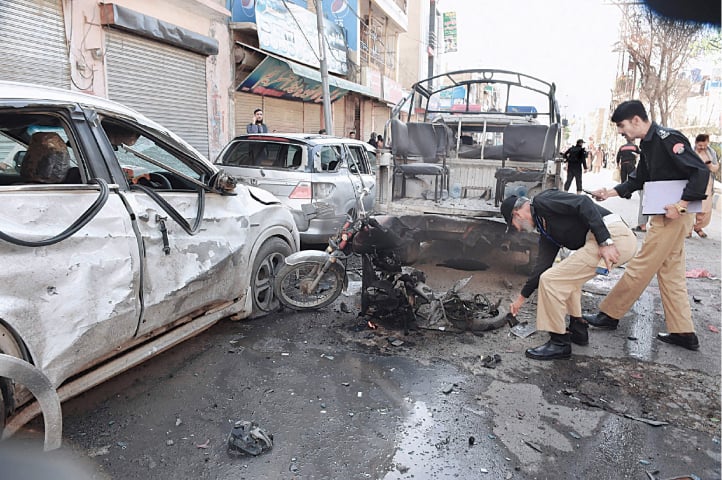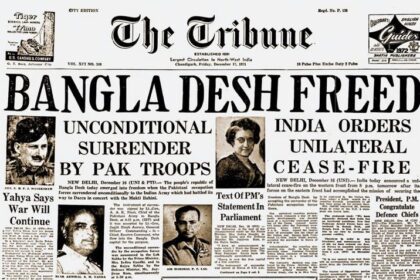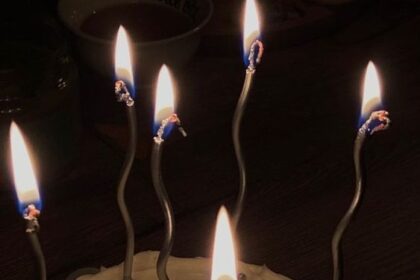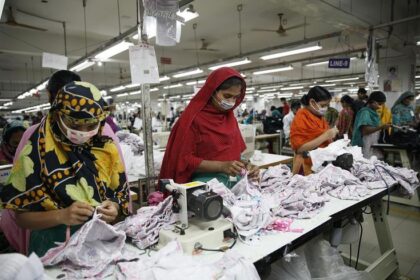Pakistani media has often been dubbed superficial, presenting a one-sided perspective of events—one that aligns with the interests of dominant powers within the country. The media is supposed to raise awareness and provide an unfiltered view of national affairs. It should offer a transparent reflection of the state and its people, portraying who they are and what goes on in their lives. Unfortunately, that is not the case with Pakistani media, which seems more interested in selling a sanitised, glossy image of the country than in voicing the struggles of its people.
News or Noise
Turning on the news, you’ll expect to see the myriad of atrocities that afflict Pakistan; however, not to worry because you will be met with a more light picture, one that involves a bunch of politicians bad-mouthing each other, along with vague promises by many officials, and to top it all off, wait for it—yep, you guessed it—a headline on the engagement of Maryam Nawaz’s son.
Reality beyond the Headlines
Even though mainstream media doesn’t find the death toll in Pakistan as entertaining as a politician’s son’s marital status, a simple Google search can do the trick. But be warned—the picture you’re about to see is not one you’re likely prepared for. Within just the last week, two people died in an explosion in Kohat, KPK; another was killed in Sorab; four more lost their lives across Balochistan and KPK; two were killed and six injured in a blast in Quetta; two police officers and four Pakistani Taliban members were also killed in a rare raid; three others died in a separate road accident in Karachi; and several railway employees were lost after the collapse of a bridge at Khanewal station. Not to mention the 32 lives lost in recent storms. And this is just the beginning of what Pakistan is really like—because a single look past the glaring, dramatised headlines reveals a far more morbid reality.
Selective Grief
It is well known that the media has always held a soft spot for the authoritarian bodies and excels in feeding a perspective that glorifies the said “authorities'” image, but to take this narrative to the extent where it has limited the access of news to the people is another story. One such example is the recent death of Dr. Sheikh Mahmood Ahmad, a UK-trained Ahmadi gynaecologist, whose demise barely made it to the mainstream Pakistani media. Along with this, countless cases of Baloch abductions, custodial deaths, femicide, honour killings, and neglect of missing persons cases seem not to hold enough weight to motivate the Pakistani media to replace the meaningless headlines about celebrity gossip with something that deserves more coverage.
Chosen Ignorance?
The media is often very fond of conducting regular follow-ups on the high-profile marital statuses and personal lives of celebrities. Unfortunately, this enthusiasm rarely extends to judicial proceedings in sensitive cases, such as the abduction of Christian girl Ariha Gulzar, Baloch student Mahjabeen, the Khuzdar bus bombing, or the hijacking of the Jaffar Express. Similarly, the media barely batted an eye at Pakistan’s recent addition to the Circus Monitor, deeming it unworthy of mainstream coverage.
Disposable Storytelling
Treating stories like disposable story arcs is something Pakistani media has been doing for many years. It’s a consistent pattern with almost every case. The media obsesses over them until a new distraction emerges. Coverage dwindles, public pressure fades, and, as a result, justice gets delayed. The same pattern was seen in Noor Mukadam’s case, which might explain why a case with ample evidence had its decision delayed for three years. As the media turns lives into passing headlines and reduces them to dramatic segments, it strips them of their meaning and urgency.
Manufactured Normalcy and its Dangers:
This illusion of stability created by such meaningless headlines is not only misdirecting but also dangerous. Such practices nurture a society that mourns privately but celebrates publicly. We’re making a choice of silence over outrage, burying important and urgent cases under sheaths of such idle coverage. What we need is less celebrity gossip and more reality, a media that exposes more than it conceals. One that gives a voice to the unheard and dictates stories that matter, especially the unpleasant ones.
















